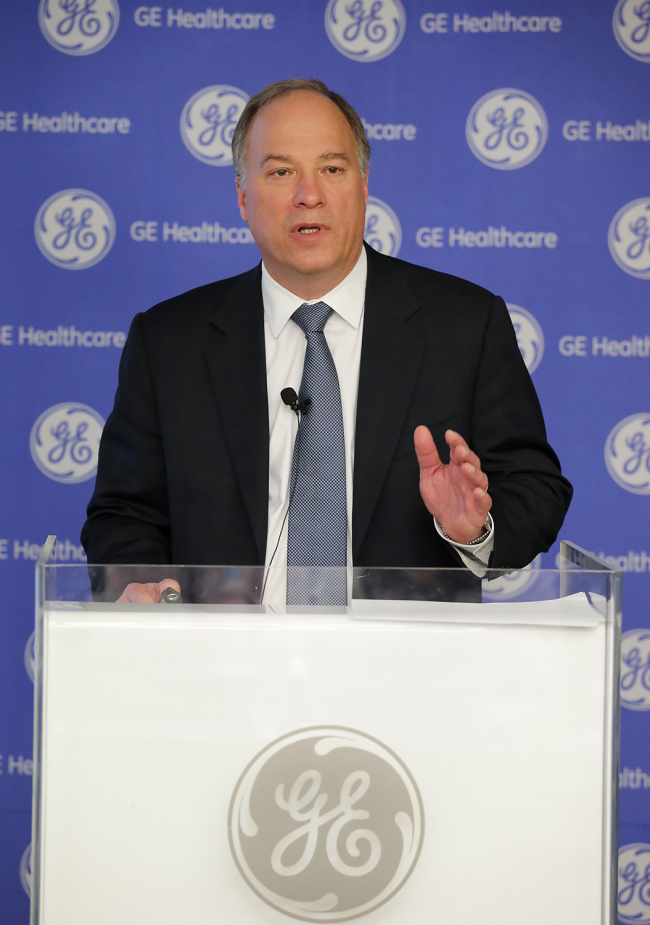Korea’s rapidly aging population is expected to bolster GE Healthcare’s presence here despite the currently sluggish performance of the domestic healthcare device market, according to a senior GE executive Monday.
“Reimbursement (of the national health insurance and other welfare systems) comes up and down but the largest trick is that Korea is the fastest-aging society,” said Steve Gray, president and CEO of molecular imaging and computed tomography at General Electric.
“Reimbursement (of the national health insurance and other welfare systems) comes up and down but the largest trick is that Korea is the fastest-aging society,” said Steve Gray, president and CEO of molecular imaging and computed tomography at General Electric.

According to the U.S. Center for Strategic International Studies, almost 40 percent of the Korean population is likely to be older than 60 by 2040, a big jump from 16 percent in 2010.
Accordingly, the Korean government forecasts its spending on social security and welfare to take up around 30 percent of the gross domestic product in 2060.
“Korea is very important. It is the third-largest market for GE Healthcare, and the papers and research outcomes by the doctors and prolific researchers over the past five to six years have been very impressive,” Gray said, stressing that GE will push for more aggressive marketing here.
GE Healthcare, which accounts for about 13 percent of GE’s sales, has been upping its market presence in Korea. In 2013, it decided to expand its ultrasound device manufacturing facility by June this year to generate 250 billion won ($240 million) in sales a year. This would account for 30 percent of the sales of all GE devices, the company said.
The American conglomerate also announced that it would invest 200 billion won over the next decade to establish an R&D center for breast cancer diagnosis device development in Korea.
Mindful of emerging local competitors such as Samsung, which has recently declared healthcare to be the group’s next growth engine, Gray said he welcomes the competition. In 2011, Samsung acquired Medison, a local mid-range ultrasonic imaging device maker.
“I think Samsung is a very innovative company and their investment in healthcare really makes a positive statement to the market,” he said.
Gray’s visit to Korea was to mark the release of GE Healthcare’s Revolution CT, a device that promises to deliver uncompromised image quality and clinical capabilities through the convergence of coverage and spatial and temporal resolution, according to GE.
Although the device has yet to receive the local government’s approval, GE Healthcare Korea sees it as the centerpiece of the firm’s marketing this year, obviously targeting the diagnosis of senile disease and others.
By Bae Ji-sook (baejisook@heraldcorp.com)
-
Articles by Korea Herald









![[Weekender] Korean psyche untangled: Musok](http://res.heraldm.com/phpwas/restmb_idxmake.php?idx=644&simg=/content/image/2024/05/02/20240502050841_0.jpg&u=)








![[Eye Interview] 'If you live to 100, you might as well be happy,' says 88-year-old bestselling essayist](http://res.heraldm.com/phpwas/restmb_idxmake.php?idx=652&simg=/content/image/2024/05/03/20240503050674_0.jpg&u=)
